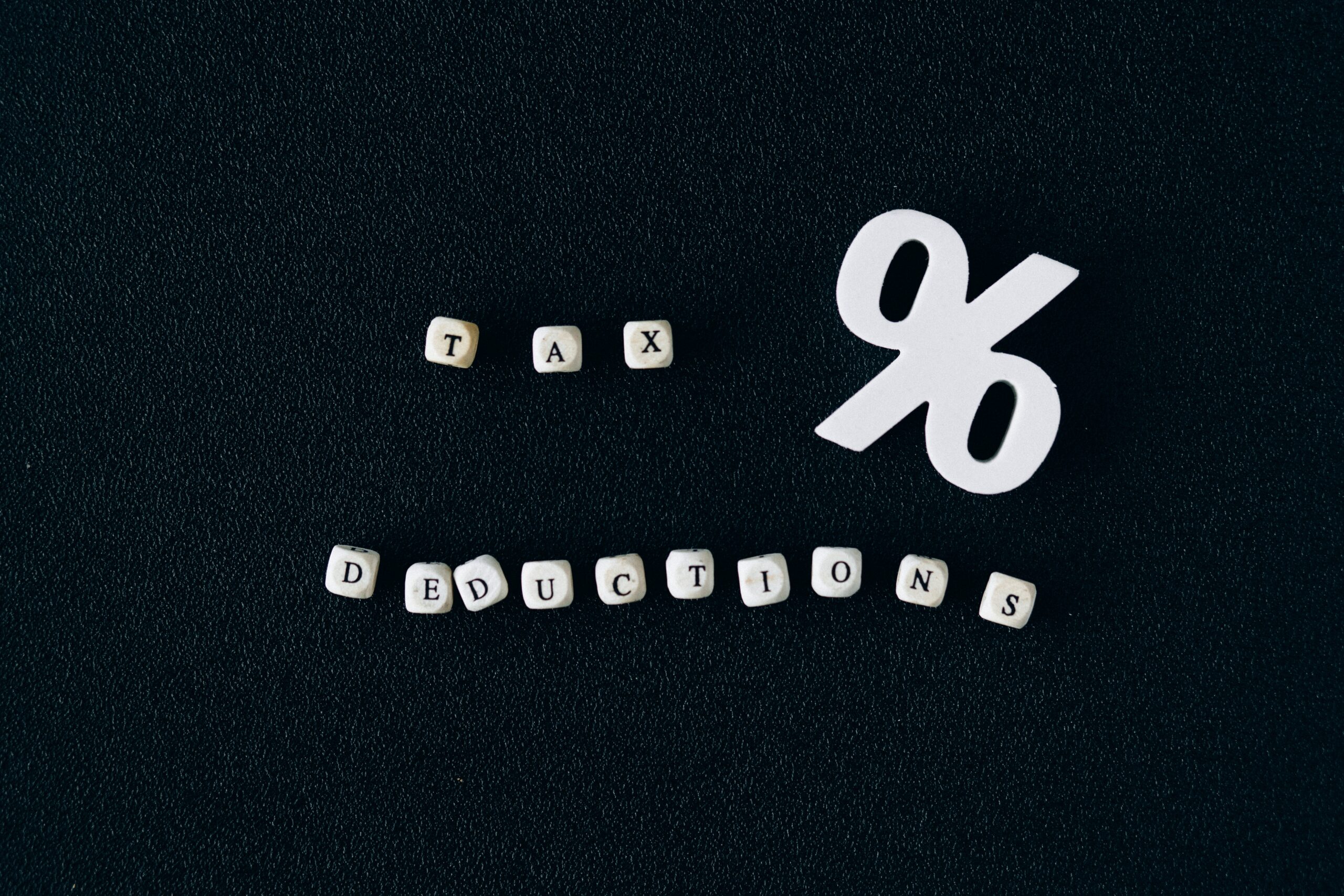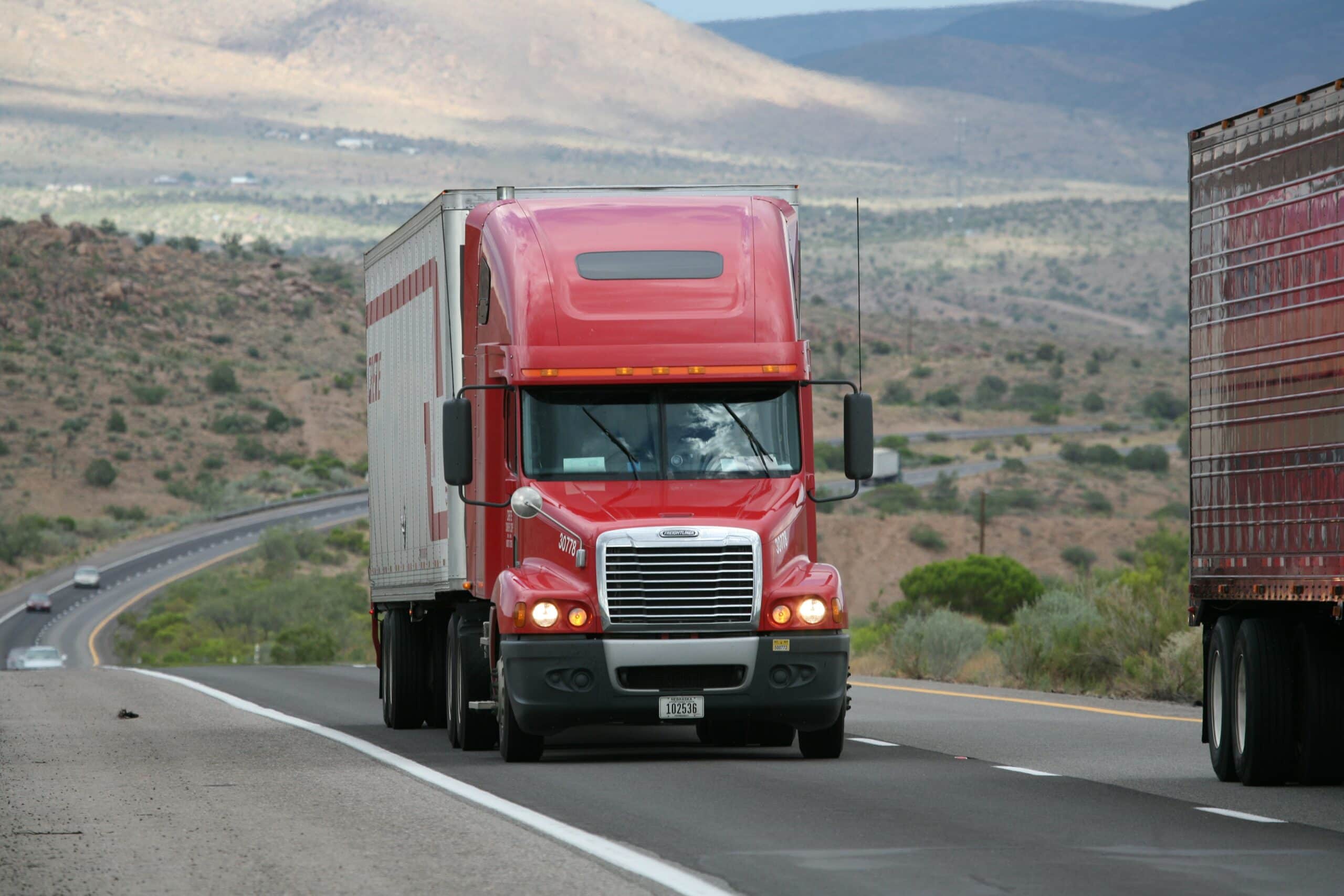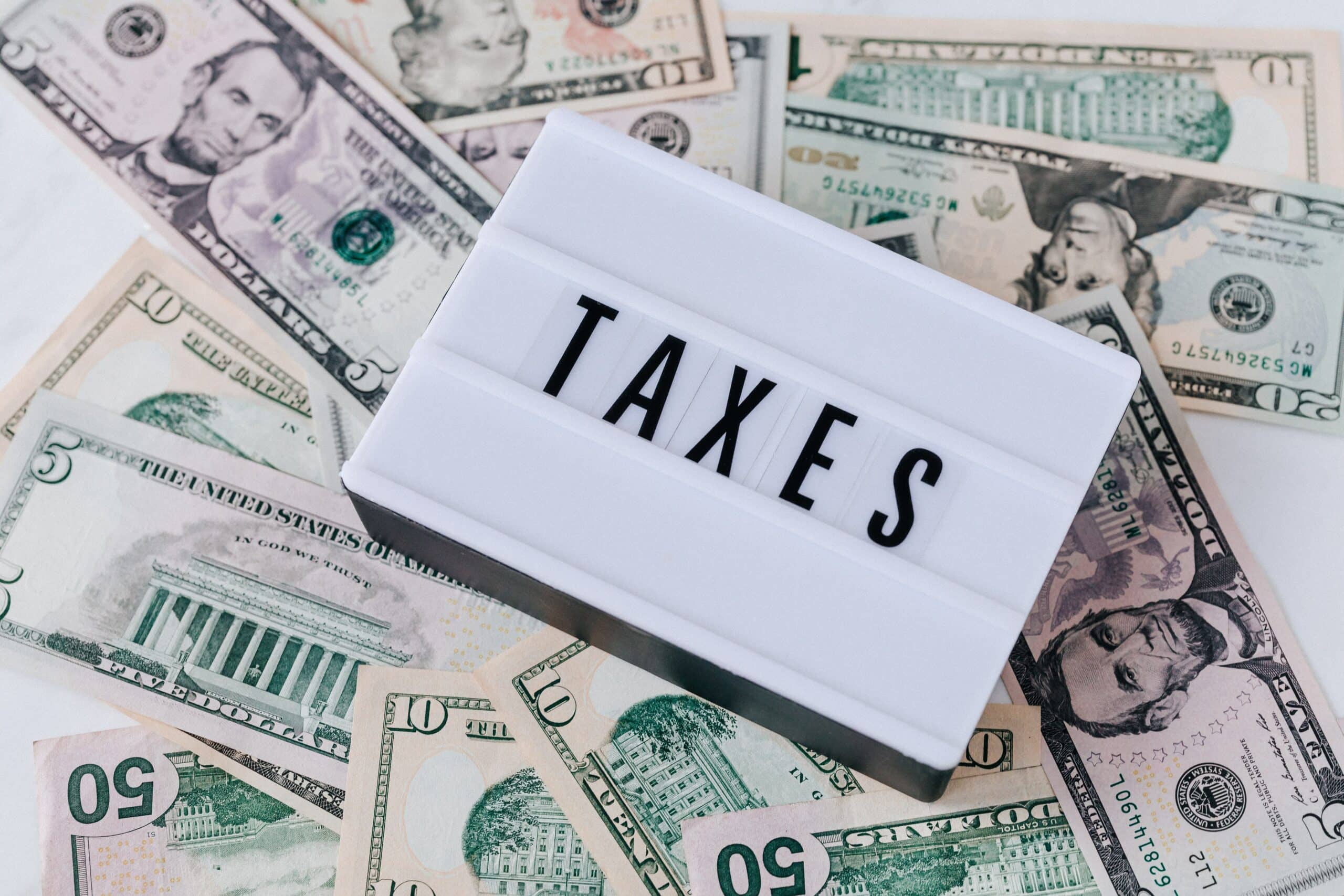How do owner operators pay taxes? If you’re used to working as a company driver, or in some other field entirely, this is an important question to get right. It can take some time to get used to handling your own tax payments. Making mistakes can be costly, too.
The truth is that paying your taxes isn’t as difficult as you think. There’s no need to be intimidated by learning to pay your taxes- anybody can do it. Plus, there are so many free tools available to help you get this right that it’s easier now than ever before.

What’s Different About Taxes For Owner Operators?
Before we talk about how do owner operators pay taxes. Let’s be sure you understand exactly what makes taxes different for owner operators. While you may be under contract with a carrier, as an owner operator you’re considered an independent contractor. For tax purposes, that makes you self-employed.
As a company driver, or any other W2 employee, your taxes are withheld from your paycheck before you get it. Your employer handles the calculations that determine how much of your pay is withheld, and they handle making those tax payments to the IRS. Then, each year, you get a W2 form showing how much has been paid to the IRS in your behalf. This includes income tax, social security, and medicare contributions. That form is what you use when you file your tax return.
If you’re self employed, things work differently. Whoever is paying you is simply giving the full amount of money owed, with nothing withheld.
So, for company drivers, their paycheck consists entirely of after-tax income. For owner operators, their entire paycheck is pre-tax income. An owner operator is responsible for making all of their tax payments themselves.
How Do Owner Operators Pay Taxes?
The short answer is that owner operators calculate quarterly estimated tax payments, and set aside enough of their income to make those payments. As the name suggests, these payments are due four times per year.
There are two types of taxes that you’re paying as an owner operator: income taxes and self-employment taxes;
Federal Income Tax
This is the tax you pay based on what your income is. As a company driver this amount is estimated for you, and withheld for you. As an owner operator, you’ll have to estimate how much you’re going to get paid, and then calculate the amount of income tax you’ll owe based on that.
Self Employment Tax
The self employment tax consists entirely of social security and medicare payments. Normally, you’re employer pays half of these for you, and the other half is withheld from your paycheck along with your income tax. As an owner operator, you are responsible for paying the full amount.
You can opt out of the self-employment tax, if you’re willing to opt out of receiving both social security and medicare benefits when you retire. If you have a robust retirement account, maybe it’s worth considering. For most people, though, you’ll be glad you made these payments when the time comes for you to retire.
Estimated Tax Payments
If you’re wondering how do owner operators pay taxes, one thing to remember is that you are required to make quarterly payments. If any of those quarterly payments are late, you will have to pay a late fee.
Many people estimate the amount of these payments based on their income for the previous year. However, it may be a good idea to consult a tax professional. They can help to ensure that your estimates are as accurate as possible.
State Taxes
Everything we’ve covered so far is for your federal taxes. State taxes are different, and since each state handles their taxes differently there’s no good way to cover that information here. However, you may want to consider working in a state that doesn’t have an income tax.
In these states, your taxes are both simpler and smaller. With no state income tax, you don’t have to make any tax payments to the state, even as an owner operator. If you’re in a state which does have a state income tax, the process is usually similar to paying your federal taxes. You’ll be required to make quarterly estimated tax payments to the state government.

How To Save Money On Your Taxes As An Owner Operator
Because of the self employment tax, you’ll often find yourself paying more in taxes as an owner operator than you would as a company driver at the same pay level. Fortunately, there are plenty of easy (and legal) ways to save some money. All that’s required is that you keep impeccable records- which is something you should be doing anyway.
So, part of how do owner operators truck driver pay their taxes is that they keep detailed records so they can make lots of deductions. These deductions are what saves them the most money on their taxes.
How Your Taxes Are Calculated
Your taxes are noted based on the gross income, but on the profit you earn. That’s true for self employment taxes as well as federal and state income taxes. Profit is your gross income minus your business expenses.
So, you’re only taxed on the money that’s left over after you’ve paid for all of your business expenses.

How To Use Deductions To Save Money
First, you should understand that if you don’t show your deductions, the IRS will determine them for you. And if that happens, you’re going to owe a lot more money than you would if you listed the deductions yourself.
So, you want to carefully document all business related expenses so that you can minimize the amount of taxes you owe. Insurance premiums, interest paid on business loans (like the loan for your truck), retirement plans, home office, depreciable property, permits and fees, supplies, maintenance costs like tires as they only last so long, travel, and truck leases are all things that can be deducted as a business expense. That’s certainly not a comprehensive list, and a tax professional can help you to identify even more deductible business expenses.
Deducting business expenses
The key to deducting business expenses is detailed record keeping. You need to be able to demonstrate not only what the expense was, but also remember specifically what it was for. Sometimes these are easy and obvious, like truck maintenance. But a receipt for meals or snacks bought while on a long over the road run might be less easy to pin down. But you have to document that they were specifically for food that was eaten while you were on a job.
The more expenses you can deduct, the less your taxable income will be. This is where are great tax professional can be especially helpful. They can identify deductible expenses that you would never have noticed, and they can also ensure that every deduction is legal and won’t lead to an audit. More importantly, most reputable tax professionals will guarantee their work by taking any responsibility for an audit- including paying any fines or back taxes that are charged as a result of the audit. That’s a great safety net to have.
Per Diem
As a trucker, the IRS is assuming that you spend a certain amount of money each day on food and other living expenses while you’re on a job. As long as you spend at least one night away from home on a job, you can claim the per diem deduction.
That’s important- in all likelihood, the per diem deduction is actually higher than the amount that you really spent. It’s usually somewhere around $60-$70 per day.
If you’re working short dedicated runs, this won’t matter much to you. If you’re returning home at night you can’t claim the per diem deduction no matter how many miles you drove or how many hours you worked.
But if you’re working long distance runs, claiming the per diem is probably going to save you more money on your taxes than deducting what you actually spent on daily living expenses.
Depreciation
As you’re learning about how do owner operators pay taxes, one word that keeps popping up is “depreciation.” Understanding depreciation can have a big affect on your taxes, so you need to know what it is and what it means.
We’ve already mentioned that depreciated equipment can be a tax deduction, so let’s explain that a bit more. Since you own the truck, it counts as an asset. Any depreciation in the value of your truck, therefore, can be seen as an expense.
As you use your truck, it loses value. With each mile you drive and each year you own it, it loses value. Trucks, like personal vehicles, are one of the only assets that loses value over time. Other assets like investment accounts and houses, almost always gain value over time, and therefore increase your overall wealth.
Most of the equipment you use, however, will only lose value over time. So, the IRS allows you to calculate how much value your truck has last in the previous year, and deduct that from your taxable income. Be sure to use the formulas that they provide, though. Otherwise you’ll end up with the wrong amount.

Deductions for a Lease vs a Purchase
There are a lot of factors to consider when you’re trying to decide whether to lease or purchase a truck. One that often gets ignored has to do with how do owner operators pay taxes, and what kind of a deduction you’ll get.
While many people are turned off by the bigger expense of a lease, that expense can turn out to be a big benefit. That’s because you can deduct the entire monthly payment from your taxes. However, because you don’t own the equipment, you cannot deduct the depreciation.
One more thing: after the first three or four years, the depreciation deduction gets very, very small. That’s because, by that time, you’ve already experienced the most depreciation in your truck’s value. From here on out the value remains relatively stable.
So, while purchasers will get a bigger tax break in the first three years. After that the leasers are actually the ones with the biggest tax advantage.
Myth Busting
As you research how do owner operators pay taxes. You’re going to run into a lot of commonly held ideas that seem too good to be true. Some of these are myths, and others are true- conditionally, at least. Lets take a look at the most common ones.
- In the first year you start your business, you will owe no taxes. This is one is just untrue. We’re not sure how that idea got started, but you will absolutely owe taxes in your first year.
- You can deduct deadhead mileage and days off due to illness. Sort of- but since you’re only taxed on your profit, and can only deduct the expenses you incur while working, these things have already been deducted. Don’t try to deduct them a second time.
- Your dog is a deduction. As weird as it sounds, this one is true but only if your dog is part of the trucking industry operation and is always with the truck. If you leave it at home while you work, it won’t count. The idea here is that a dog is a great security system for the truck.
- You should be incorporated. This can be both true and false. If you tax savings from incorporating will be greater than the costs of incorporating, then yeah, go for it. Otherwise it’s not worth the trouble.
- You can negotiate with the IRS to pay back taxes for pennies on the dollar. This myth is referencing an “offer in compromise.” While the IRS does grant these in extreme cases, you really shouldn’t count on it.

How Much Should An Owner Operator Set Aside For Taxes?
A good rule of thumb is to set aside between 25% and 28% of your net income for taxes. Remember that your quarterly tax payments are only estimates of the amount you’ll actually owe. So if you only pay the amount that’s been calculated, your tax payments could be too low or too high.
Of course, 25-28% is also an estimate, but it’s a pretty reasonable one and it will ensure that your tax payments scale up or down alongside your income.
Also, remember that we’re only talking about net income here. That’s what’s left over after paying all of your business expenses. Don’t set aside 25% of your gross income, or you’ll end up dramatically overpaying your taxes. While you’ll get the extra money back when you file your tax return, there’s no sense in putting yourself in financial hardship in the meantime.
What Happens If I Miss A Quarterly Payment?
It’s fairly common, as you’re learning how do owner operators pay taxes, to forget the deadlines for quarterly payments. Fortunately, nothing terrible happens when you do. The IRS will charge you a late payment penalty when you file your taxes for each quarterly payment that was missed. While it’s frustrating to have to pay those penalties, late fees from the IRS aren’t nearly as high as you might expect. As long as you still pay the full amount of taxes you owe you’ll be ok.
Do Owner Operators Pay Income Tax?
As new owner operators figure out how do owner operators pay taxes, one very common question is do they have to pay income tax? Many people think that, since they are self employed, the income tax won’t apply to them.
We understand the confusion. You technically don’t have an employer paying your wages or a salary. So the money you make is the profit from your business.
But notice that it’s not the Federal Salary Tax or the Federal Wage Tax. Income is a broad term that simply describes any money you earn (or are given), minus your business expenses. So, yes, owner operators pay the Federal income tax. They pay state income taxes, too, unless they’re living and working in states like Florida and Texas that have no state income tax.

Do Owner Operators Pay Less Taxes Than Company Drivers?
This is a difficult question to answer. That’s because the amount a person pays in taxes depends heavily on their income, marital status, number of dependents, place of residence, and hundreds of other things. That includes whether or not they handle their tax returns themselves or pay a professional to do it.
On paper, owner operators should be paying more in taxes than company drivers. An operator pays the same amount in income taxes as a company driver earning an equivalent salary, but the owner operator also has to pay the self employment tax. So, all else being equal, the owner operator pays more in taxes than the company driver.
The problem is, all else is not equal. First, it’s quite likely that the owner operator is earning a lot more money than the company driver. So even if they’re paying a higher percentage of their income in taxes, they’re still earning more money.
Second, owner operators can take advantage of a lot more tax deductions than a company driver. That can lower their taxes significantly.
Deductions are your friend when paying taxes
However, all of those deductions available to owner operators are for expenses that company drivers don’t have to pay out of pocket anyway. So then it becomes a matter of how much the company driver’s take home pay is affected by those expenses.
There simply isn’t an easy, clear cut answer here. An owner operator might pay less in taxes, if they’re great at keeping records and are willing to hire a quality tax professional to help them take full advantage of every possible deduction.
But it’s also quite likely that an owner operator will end up paying a lot more in taxes because of the self-employment tax. If you’re trying to use taxes to help make the choice between working as a company driver and working as an owner operator, it’s probably not the right approach.
Owner Operators need to plan ahead
The better question is whether or not you want to handle your taxes yourself, or rely on your employer to withhold and pay your taxes for you. Handling your own tax payments can be a hassle and the learning curve can be steep. It’s much easier to simply let your employer do that on your behalf.
But you’re much more likely to get your taxes right if you do it yourself. You don’t want to owe taxes when you file, but you also don’t want to have the government owe you money back. That’s like giving the federal government an interest free loan, and you could’ve been using that money all along. When your employer is withholding your taxes, there’s always a greater margin of error.
You’ll owe more or be owed more. When you’re calculating your payments yourself, you can get much closer to the amount you actually owe.

How Owner Operators Pay Taxes
While it’s definitely intimidating at first, paying your taxes as an owner operator is not nearly as difficult as it seems at first. It really all boils down to a simply process: estimate how much you’ll get paid for the year. Subtract your estimate business expenses, and then use the guidelines on the IRS website to calculate your income taxes and self employment taxes for the year.
Then take that amount, and divide it by four. That will give you the amount of each quarterly payment you have to make, and now you’ll know how much money to set aside for each payment.
With each year that goes by you’ll get better at making those estimates of your gross income and your business expenses. So that your tax payments will become more and more accurate. One of the smartest things you can do is hire a tax professional to help you sort through all of this. They can maximize your return or minimize the amount you owe. They can also help you dial in your estimated quarterly payments more quickly. So that you can keep more of your money in your pocket, where it belongs.
In fact, the best way to be sure that you don’t get slammed with a much higher tax bill after you make the leap from company driver to owner operator is to work with a tax professional to take advantage of every possible deduction.
The other key to keeping your taxes in good order is great record keeping. This helps track your deductions as well as protecting yourself from audits. Good record keeping is about keeping track of your income as well as your deductions so there’s no doubt. When it comes time to file your return each year, what you’re actually supposed to pay.
About Booker Transportation
Booker Trans is 100% Owner Operator. It is our belief that an Independent Owner is the best way to get a customers freight delivered timely and safely. Booker is a leading Refrigerated Carrier providing the best lease options in the industry for today’s Owner Operators. Monthly and Yearly Awards, Longevity Bonuses, and the Free tires for Life of Lease Program, are just a few examples of what Booker Trans offers the Owner Operator. Booker Trans has built it’s success upon working partnerships with Customers, as well as Agency Relationships built over the last 20 years. Those same relationships are what makes consistent year round freight possible.
Are you interested in becoming an owner operator driver or getting into the logistics industry?
Let’s connect!
Navigating the Highways of Change
04/18/2024

Owner Operators should be prepared for Cellular Service outages!
03/06/2024

